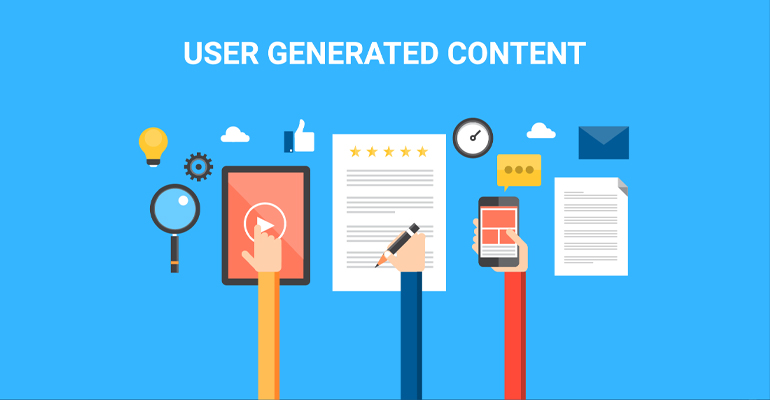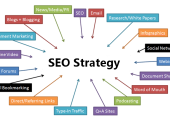In the world of nonprofit marketing, Content Repurposing for Nonprofits is more than just a buzzword—it’s a strategic necessity. By repurposing content effectively, nonprofits can extend their reach, maximize resources, and engage with their audience more deeply. This guide explores actionable strategies for content repurposing for nonprofits, enhancing newsletter effectiveness, and measuring impact.
1. Transforming Blog Posts into Videos
One effective strategy for content repurposing for nonprofits is to convert popular blog posts into engaging videos. For instance, if you have a blog post about volunteer opportunities, consider creating a short video featuring volunteer testimonials or behind-the-scenes footage. This visual format not only captures attention but also allows your message to reach a broader audience. Tools like Canva and Adobe Spark can assist in producing professional-looking videos with minimal effort.

2. Breaking Down Long-Form Articles for Social Media
Long-form articles are often rich in content but can be overwhelming for social media audiences. Repurpose these articles by breaking them down into bite-sized social media posts. Extract key statistics, impactful quotes, and visuals to create engaging posts that highlight your organization’s achievements or ongoing campaigns. Platforms like Buffer or Hootsuite can help schedule and manage these posts effectively.
3. Turning Webinars into Podcasts
Webinars offer a wealth of content but may not reach all potential supporters due to time constraints. Repurpose webinar recordings into podcast episodes to cater to those who prefer audio content. Editing tools such as Audacity or Adobe Audition can streamline this process. This approach extends the reach of your webinar content and provides additional value for your audience who can listen while on-the-go.
4. Leveraging User-Generated Content
User-generated content (UGC) is a powerful element in content repurposing for nonprofits. Encourage your supporters to share their stories and experiences. Repurpose this UGC into blog posts, social media updates, or testimonial videos. User-generated content not only provides fresh perspectives but also builds authenticity and engagement. Tools like SocialBee and Sprout Social can help curate and manage UGC effectively.

5. Curating Content from Other Sources
Curated content is a valuable asset in content repurposing for nonprofits. Share articles, reports, or infographics from other reputable organizations related to your cause, and add your unique insights or commentary. This not only provides your audience with high-quality information but also positions your nonprofit as a thought leader. Use tools like Feedly or Pocket to aggregate and manage curated content.
6. Adapting Content for Different Audience Segments
Tailor your content to various audience segments, such as donors, volunteers, or partners. For example, a detailed case study about your nonprofit’s impact can be adapted to emphasize financial contributions for donors or highlight volunteer efforts for recruitment. Repurposing content for different segments ensures relevance and increases engagement, making your communications more effective.
Additional Content Repurposing for Nonprofits Techniques
User-Generated Content
Encouraging user-generated content is a key strategy in content repurposing for nonprofits. Supporters sharing their experiences and stories can be repurposed into various formats like blog posts or social media updates. This approach not only provides new content but also enhances authenticity and engagement. For instance, turning a volunteer’s personal story into a blog post or testimonial video can significantly boost engagement.
Curated Content
Curating content from other sources is another effective method in content repurposing for nonprofits. Share valuable articles, reports, or videos from related organizations, adding your insights or commentary. This strategy helps maintain a steady flow of information and reinforces your nonprofit’s role as a valuable resource. Use Feedly or Pocket to stay updated on relevant content.
Repurpose for Different Audiences
Repurposing content for different audience segments is crucial in content repurposing for nonprofits. Tailor your existing content to appeal to specific groups like donors, volunteers, or partners. For instance, a success story can be adjusted to highlight the impact of donations for potential donors or emphasize volunteer contributions for recruitment efforts.

Enhancing Newsletter Effectiveness
Newsletters are essential for nonprofit communication. Here’s how to enhance their effectiveness:
Personalization
Personalize newsletters using data to segment your audience based on interests and behaviors. Tailored content increases engagement and helps build stronger connections. For example, send targeted updates about upcoming events to active volunteers or exclusive donation appeals to major donors. Tools like Mailchimp and Constant Contact offer robust segmentation and personalization features.
Interactive Elements
Incorporate interactive elements such as polls, quizzes, or surveys to boost engagement and gather valuable feedback. Interactive content makes newsletters more engaging and provides insights into your audience’s preferences. Services like Typeform or SurveyMonkey can help create and integrate these elements effectively.
Storytelling
Integrate compelling narratives into your newsletters to connect emotionally with your readers. Share stories of individuals impacted by your organization’s work, showcasing the human side of your efforts. Storytelling makes newsletters more relatable and impactful, driving deeper connections with your audience.
Clear Call to Action
Ensure your newsletters include clear and actionable calls to action (CTAs). Whether it’s making a donation, signing up for an event, or sharing your content, a well-defined CTA guides readers on the next steps. Highlight CTAs using buttons or prominent links to increase their visibility and effectiveness.
Measuring Impact
To assess the success of your content repurposing for nonprofits, track key metrics:
- Website Traffic: Monitor the number of visitors to your website to gauge the reach of your repurposed content. Tools like Google Analytics provide detailed insights into website performance.

- Social Media Engagement: Track likes, shares, comments, and other interactions to measure social media engagement. Platforms like Facebook Insights and Twitter Analytics offer valuable data.
- Email Open and Click-Through Rates: Analyze open and click-through rates to evaluate the effectiveness of your newsletters. Email marketing platforms often provide detailed analytics for these metrics.
- Donor Conversions: Track the number of donations received as a result of your content to understand its impact on fundraising efforts.
- Volunteer Sign-Ups: Measure the number of new volunteer sign-ups resulting from your content to assess its effectiveness in recruitment.
Content Repurposing for Nonprofits is a strategic approach that can greatly enhance your nonprofit’s outreach and impact. By transforming existing content into new formats and tailoring it for different audience segments, you can maximize engagement and extend your reach. Incorporate these strategies into your content plan to boost effectiveness and drive meaningful change.
For more insights on content repurposing for nonprofits, check out this comprehensive guide and explore this case study to see successful examples from other organizations. Embracing content repurposing can revolutionize your nonprofit’s communication strategy, leading to a stronger presence and greater impact in your community.







Interesting post